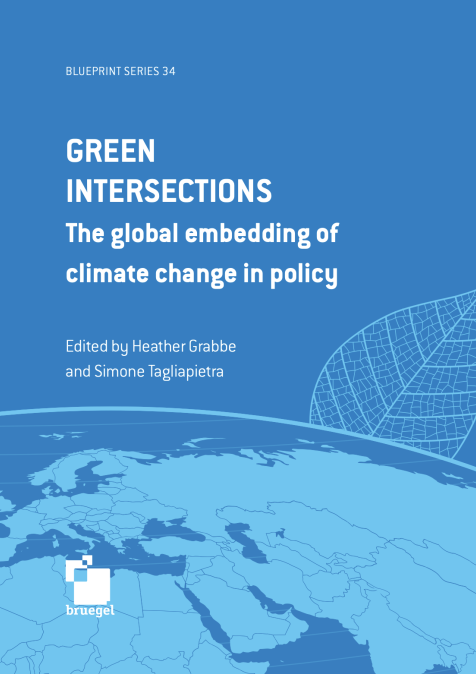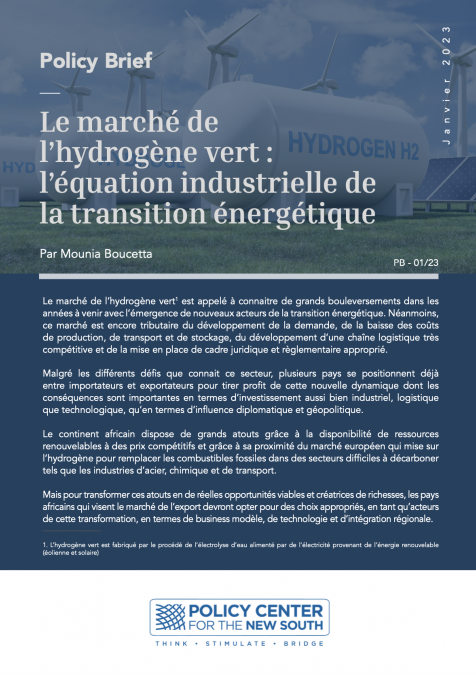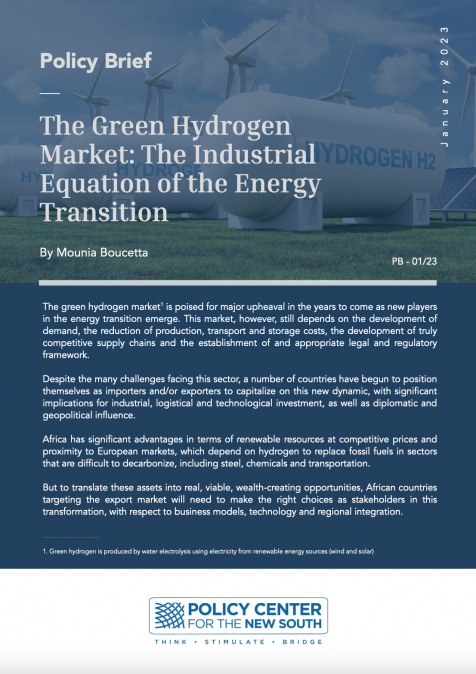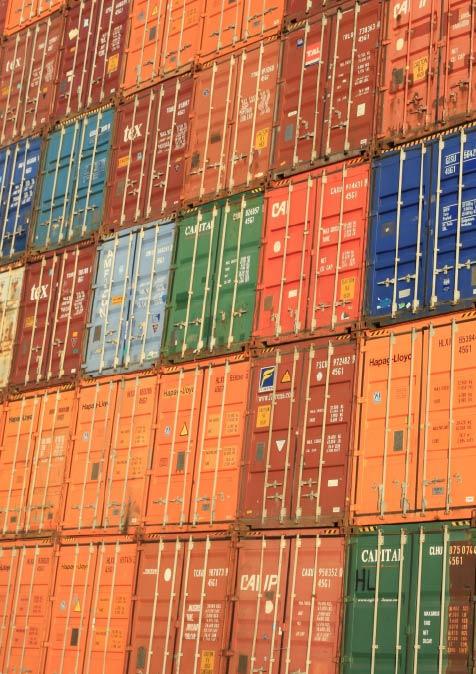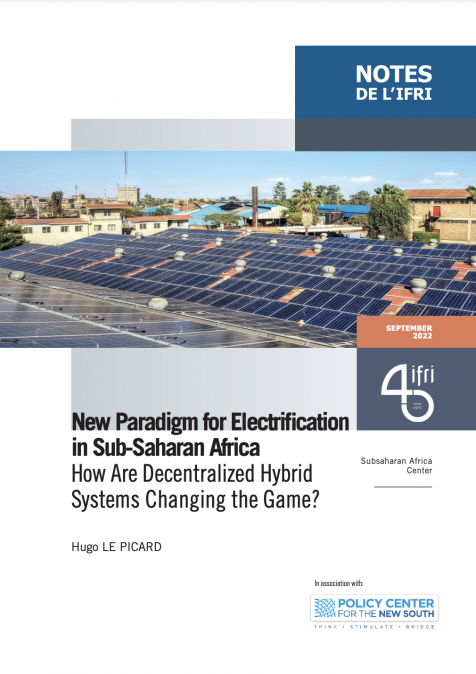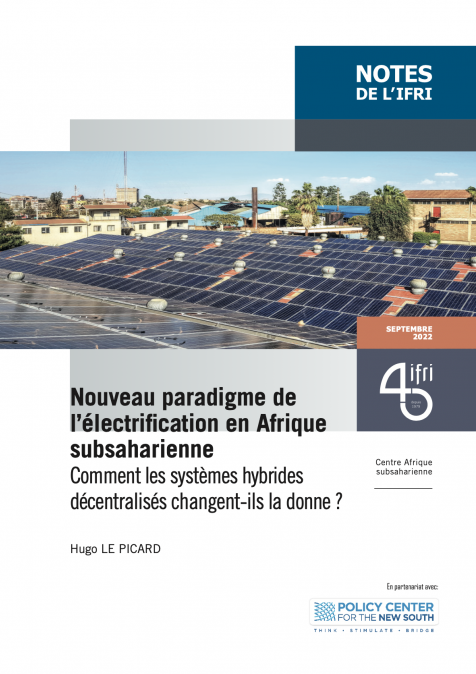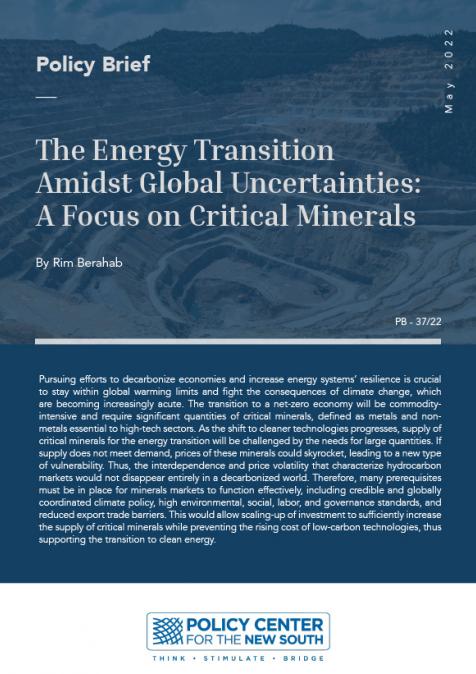Publications /
Policy Paper
This paper (see pages: 165-198), included in the book 'Green intersections: the global embedding of climate change in policy' was originally published on bruegel.org
The demand for energy in Africa is growing rapidly, driven by population growth, urbanisation and industrialisation. Nevertheless, over 600 million Africans still lack access to electricity, which represents a significant energy gap for the continent. At the same time, Africa is endowed with vast renewable-energy potential, including abundant solar and wind resources, along with emerging technologies such as green hydrogen. It is crucial to unlock this potential to meet Africa’s energy needs and to foster sustainable economic development. Africa is well-placed to capitalise on the global drive for clean energy technologies and supply chain development, as renewable energy offers the dual benefits of expanding energy access and promoting green industrialisation across the continent.
Nevertheless, achieving this transformation will be complex, involving a range of challenges in relation to governance, policy, financing, costs, domestic markets and competitiveness. Effective governance is vital to guarantee a coordinated and inclusive transition. However, many African countries are confronted with political instability, regulatory uncertainties and fragmented institutions, which make the implementation of ambitious renewable energy policies more challenging. Robust governance frameworks are thus essential to secure the investment required to scale-up renewable energy projects across the continent. It is equally important to consider the policy environment, which should strike a balance between the urgent need for energy access and specific challenges faced by Africa and the sustainability and climate goals.
Financing the energy transition represents another significant challenge. While there has been a growth in renewable energy investment globally, Africa has yet to attract comparable levels of funding because of limited access to international capital markets, perceived investment risks and inadequate financial infrastructure. It is vital that innovative financing mechanisms, such as blended finance and green bonds, are introduced to reduce the risk profile of investments and make renewable energy projects more attractive to investors.
The high costs involved add another layer of complexity to the transition process. Despite the fact that renewable technologies have become more affordable on a global scale, the high upfront capital requirements, inadequate grid infrastructure and small domestic markets in Africa make renewable energy projects less financially viable without external support. Furthermore, domestic energy markets in Africa are frequently fragmented and underdeveloped, characterised by low demand, underinvestment and energy losses. Reforming these markets and facilitating regional integration through cross-border energy trade and power pools is crucial for building economies of scale and enhancing competitiveness. Furthermore, Africa is facing intense global competition for renewable-energy investment, with Asia, Europe and the Americas already attracting significant capital and developing more mature renewable industries.
To achieve Africa’s green-energy transformation, decisive and collaborative action is required at all levels. Governments, private-sector entities and international partners must collaborate to boost investment, reinforce regulatory structures and cultivate a conducive environment for transformative change. Morocco’s experience demonstrates the success of calculated risks in the green-energy sector, as evidenced by its strategic investments in renewable energy, which have enabled the country to achieve numerous milestones in the development of this sector.
However, for Africa to succeed as a whole, African countries must create favourable market conditions and invest in local research, innovation and manufacturing capabilities. African countries remain significantly reliant on imported technologies, particularly in sectors such as solar and wind power. This underscores the necessity for increased investment in research and development (R&D) within the region. Innovation and R&D are essential for the development of a sustainable and competitive green-energy sector in Africa. Universities, research institutes and local industries must spearhead technological advances, develop local solutions and cultivate skilled workforces capable of supporting the continent’s energy transition. By strengthening these pillars, Africa can reduce its dependence on imported technologies, create new economic opportunities and establish itself as a key player in the global clean-energy market.
This chapter identifies key lessons and challenges facing Africa as it transitions to green energy, and outlines strategies for ensuring a successful green-energy transformation.

